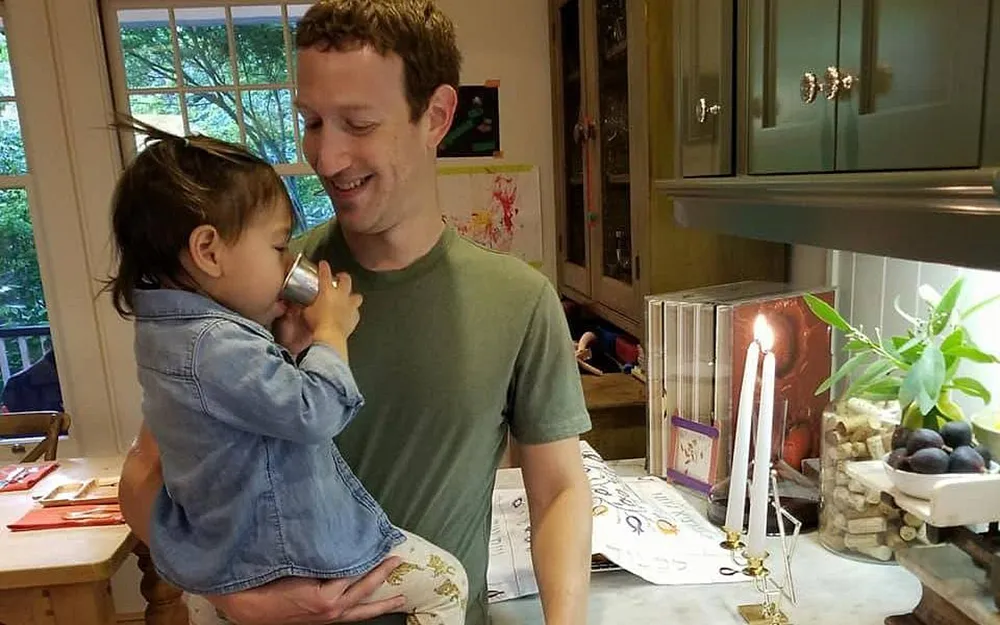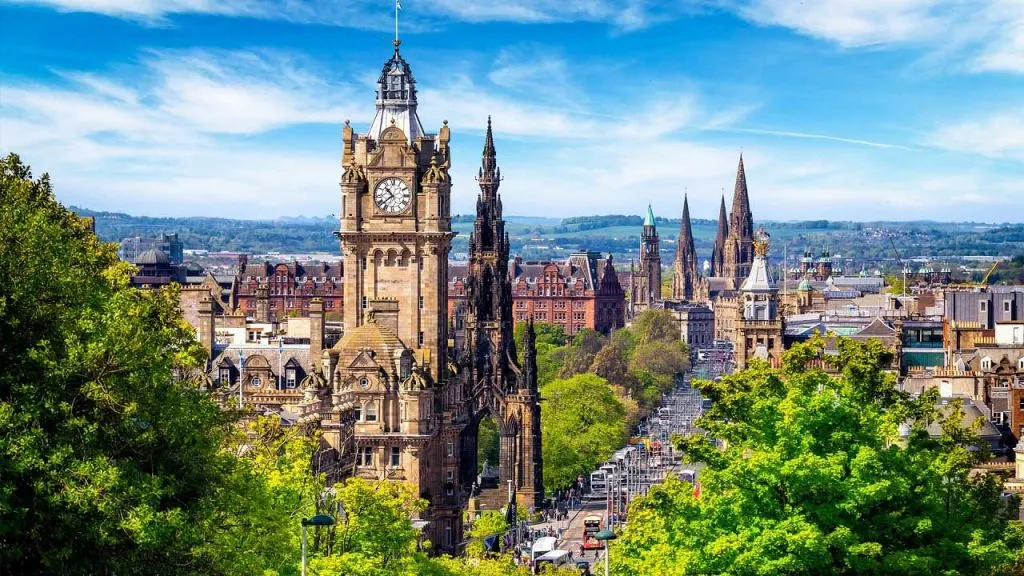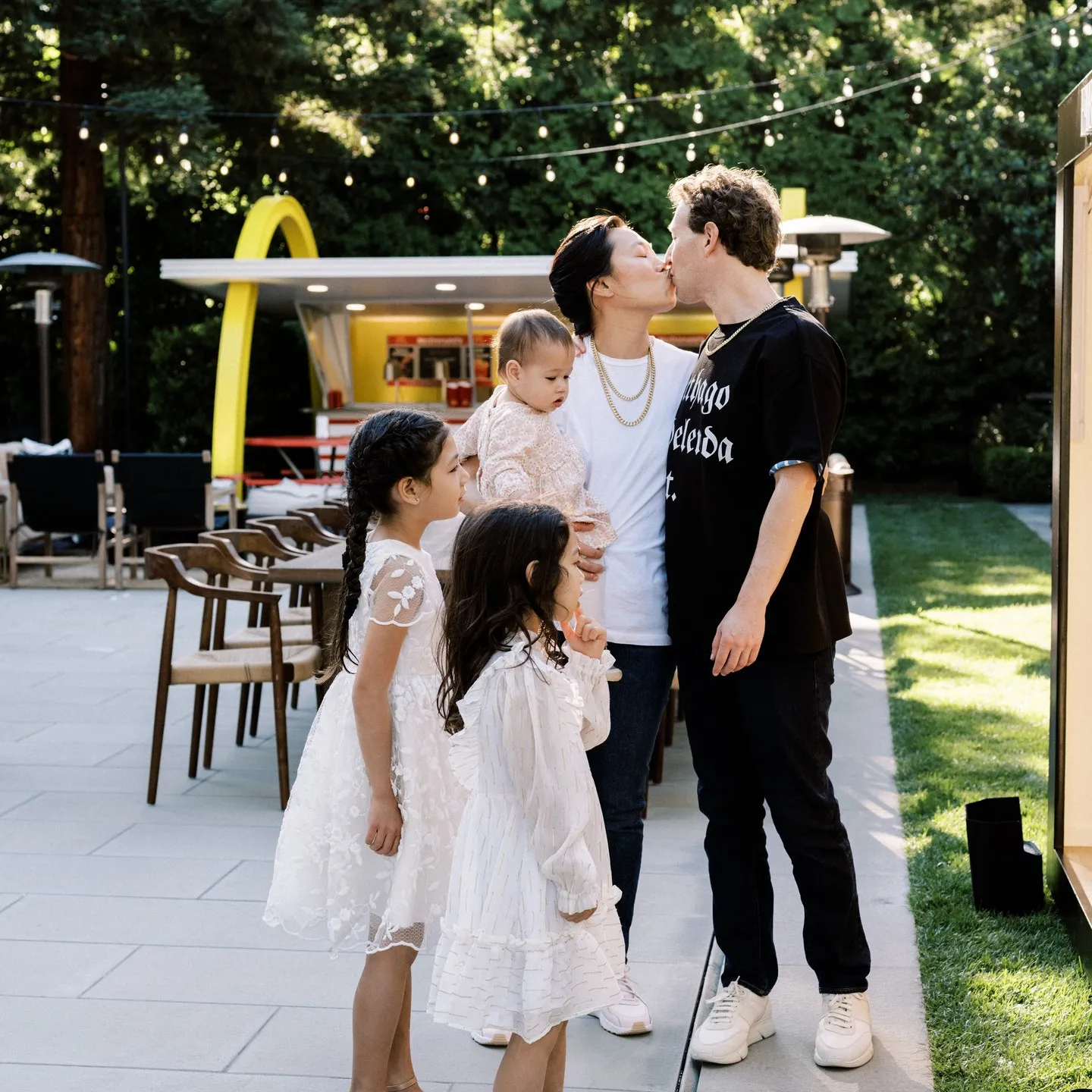

Fans Debate as Mark Zuckerberg Spends $110M Creating a Private “Kingdom” for His Daughters
Mark Zuckerberg has always been one of the most scrutinized figures in modern technology. As the CEO of Meta and the architect of platforms like Facebook, WhatsApp, and Instagram, his every move—whether professional or personal—tends to make headlines. Recently, the spotlight shifted from his business ventures to his private life, when reports surfaced that he has spent an astonishing $110 million buying up properties surrounding his homes. The move, which has been described as creating a private “kingdom” for his daughters, has sparked heated discussions worldwide. Fans, critics, and cultural commentators are all weighing in, debating whether Zuckerberg is simply being a protective father or perpetuating billionaire excess.
The Origin of Zuckerberg’s Real Estate Empire
The story begins more than a decade ago, when Mark Zuckerberg purchased his first home in Palo Alto, California. Unlike many celebrities who settle for a single luxury estate, Zuckerberg took a different approach. He began quietly buying the neighboring homes around his property, often at above-market prices, in order to maintain privacy and control over who lived nearby.
Over the years, he repeated this pattern in various locations. In Hawaii, for example, Zuckerberg purchased hundreds of acres on the island of Kauai, sparking both fascination and outrage. Locals expressed concern that the billionaire’s acquisitions were transforming community landscapes and raising fears of displacement. In California, his ongoing purchases in Palo Alto have turned what was once a typical suburban neighborhood into a tightly managed enclave under his ownership.
These acquisitions, totaling around $110 million, are now being described as a deliberate attempt to construct a private “kingdom”—a secure and secluded environment where his three daughters can grow up shielded from unwanted attention.
The Motivation: Protection or Control?
Fans and analysts alike are asking the same question: what drives Zuckerberg to spend such extraordinary sums on real estate? The answer seems to lie in a combination of protection, privacy, and control.
As one of the most recognizable figures in tech, Zuckerberg faces unique risks. Paparazzi, stalkers, and even potential security threats are part of his daily reality. For his daughters, these dangers are amplified by their father’s fame. By purchasing the properties surrounding his own, Zuckerberg ensures that strangers cannot intrude into their daily lives.
Supporters see this as a deeply fatherly act, motivated by love and a desire to keep his family safe. Critics, however, argue that the approach reflects something more controlling: a need to dominate and insulate, even at the expense of community dynamics.
Fans Split Over the “Kingdom”
On social media, reactions to Zuckerberg’s real estate strategy have been passionate and polarized.
Some fans praise him for taking extraordinary measures to protect his children. They argue that if any parent had the means to buy out neighbors and build a buffer zone, they would likely do the same. To these supporters, the “kingdom” is less about extravagance and more about responsibility.
Others, however, find the move unsettling. Critics call it tone-deaf, pointing out that California faces an ongoing housing crisis. The idea that one man can spend over $100 million creating a personal enclave while many families struggle to afford rent strikes many as symbolic of the broader wealth inequality in society.

The Symbolism of Building a Kingdom
The word “kingdom” has become central to the debate, carrying layers of meaning. In everyday language, it conjures images of royalty, exclusivity, and power. By creating a physical buffer zone that separates his family from the rest of the world, Zuckerberg is inadvertently reinforcing the image of billionaires as modern-day aristocracy.
This symbolism is particularly striking because Zuckerberg has long styled himself as a casual, hoodie-wearing innovator—a man who wanted to “connect the world.” Now, his personal life appears to be moving in the opposite direction, toward isolation and separation.
For fans, this duality is fascinating. Is Zuckerberg still the down-to-earth tech genius, or has he evolved into something closer to a monarch ruling over private territory?
What This Means for His Daughters
The real question is not just about Zuckerberg himself, but about the impact on his daughters. On the one hand, the kingdom-like environment provides them with unparalleled security and freedom. They can play, learn, and grow without fear of prying eyes or intrusive media. Unlike many celebrity children, they are unlikely to find paparazzi hiding in bushes near their school.
On the other hand, psychologists warn that excessive isolation can stunt social development. Children benefit from diverse social interactions—meeting peers in ordinary settings, navigating small conflicts, and experiencing life outside of carefully curated environments. Growing up in a private compound might shield them from dangers, but it might also deprive them of important life lessons.
Fans often speculate: will the Zuckerberg daughters grow up with a sense of normalcy, or will they become disconnected from the realities of everyday people?

Comparisons With Other Billionaire Parents
Zuckerberg is not the first high-profile figure to invest heavily in real estate for privacy. Celebrities like Beyoncé and Jay-Z, or billionaires like Elon Musk and Jeff Bezos, have all created secluded compounds to protect their families. However, Zuckerberg’s approach stands out because of its scope and deliberateness.
While others buy large estates, Zuckerberg buys entire neighborhoods. The strategy is not about owning a mansion; it’s about controlling the environment around it. This reflects the same mindset that drives his business philosophy: acquire competitors, dominate markets, and control the narrative. Fans and critics alike have noticed the parallel, suggesting that Zuckerberg approaches family life with the same calculated strategy he applies to Meta.
Community Concerns and Ethical Questions
Beyond the family, Zuckerberg’s strategy raises broader ethical questions. Local communities often view his acquisitions with skepticism, fearing that his wealth displaces ordinary families and reshapes neighborhoods into exclusive enclaves. In Hawaii, for example, his land purchases led to protests from residents concerned about access to beaches and cultural heritage sites.
Critics argue that while Zuckerberg has the right to spend his fortune as he pleases, billionaires also bear a responsibility to the communities they impact. For many, buying homes simply to tear them down or leave them vacant represents a misuse of resources in a time of housing shortages.
Supporters counter that Zuckerberg is also a philanthropist, donating billions through the Chan-Zuckerberg Initiative to causes like education and medical research. To them, his real estate choices do not negate his broader contributions to society.
The Broader Conversation: Wealth and Parenting
At its core, the debate about Zuckerberg’s “kingdom” is part of a larger conversation about wealth, parenting, and privilege. How should billionaires raise their children in a world where their privilege is unavoidable? Should they shield their kids completely, or encourage them to experience life more like ordinary children?
For some fans, Zuckerberg’s decision reflects an unavoidable reality: his daughters will never have normal lives. Instead of chasing normalcy, he is embracing their unique circumstances and giving them the security that only vast wealth can buy. For critics, though, this sets a troubling precedent, reinforcing the idea that the ultra-rich can wall themselves off from society, leaving others to grapple with the consequences of inequality.
Media Fascination and Public Reaction
Part of the reason this story has gained so much traction is because it combines elements of celebrity gossip, social critique, and cultural symbolism. Media outlets have been quick to cover every detail, from the exact cost of Zuckerberg’s purchases to the neighbors’ reactions. Fans flood comment sections with debates about whether the move is admirable or selfish.
The fascination reflects our collective ambivalence toward billionaires: we admire their success, envy their wealth, and criticize their excesses—all at the same time. Zuckerberg’s “kingdom” is not just a personal decision; it is a cultural touchpoint that sparks reflection about the world we live in.
Conclusion: A Debate That Won’t End Soon
The story of Mark Zuckerberg’s $110 million kingdom for his daughters encapsulates the tensions of modern wealth. To some, it is the ultimate expression of love and protection—a father doing everything in his power to safeguard his children. To others, it is an unsettling display of privilege, a reminder that billionaires inhabit worlds completely separate from the rest of society.
What is undeniable is that Zuckerberg’s decisions, both personal and professional, will continue to shape public discourse. His daughters may grow up behind the walls of a private kingdom, but the conversations about what those walls represent will reverberate far beyond his properties. Fans and critics alike will keep watching, debating, and questioning what kind of future this “kingdom” is building—not just for the Zuckerberg family, but for society at large.


















